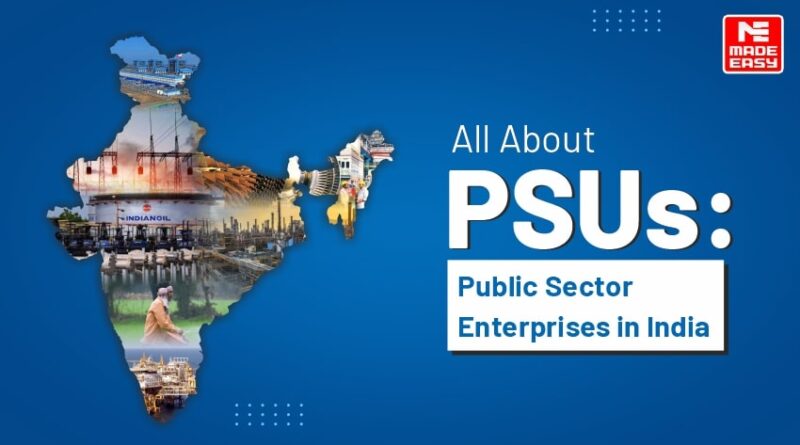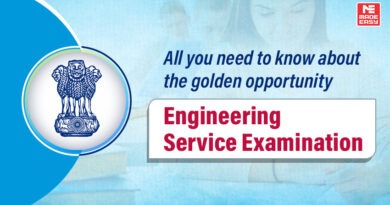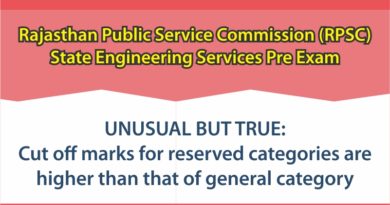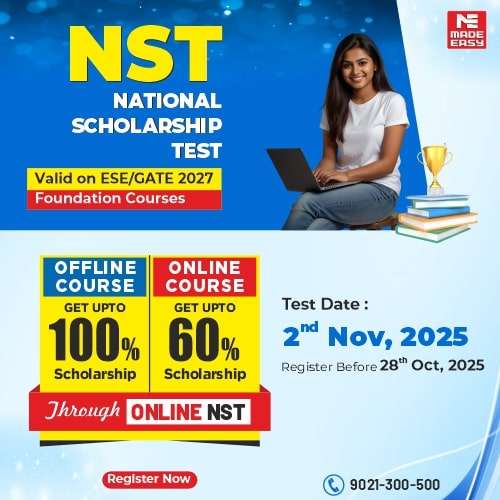All ABOUT PSUs: PUBLIC SECTOR ENTERPRISES IN INDIA
When people discuss their ideal career opportunities, PSUs often come up. Public sector undertakings are not just government-owned organizations; they are the backbone of India as well as a dream for many aspirants. Offering handsome salaries, stable jobs, various perks and benefits, along with the sense of contributing to the nation, these government organizations are often on the top choice in the list of having a stable career.
As mentioned, PSUs are the backbone of India; it is a fact, as they are a significant part of the development journey of the nation. From powering the industries to building infrastructure, the organizations play a crucial role. Offering a stable career, having a prestigious presence, and having a social impact is a perfect blend of becoming the most sought-after career choice among the aspirants.
The blog will uncover the details of why public sector undertakings are better, various types of PSUs, a list of them, what their significance is, and how they offer a stable career. Whether you’re an aspirant preparing for PSU exams or simply curious to know more about it, we’ve got you covered.
PSUs (Public Sector Undertakings)
“It’s time to start living the life we have imagined”- quote by Henry James perfectly sums up our dreams and desires. Jobs in Public Sector Undertakings give us a platform where one can live all the dreams which we all have dreamed in our college life i.e. a good job without crazy hours, with a great salary and reputation in society.
But, what are PSUs, how one gets PSUs jobs through GATE, or what is the PSU exam are questions which confuse us all? We will address such questions and more.
What is PSU?
PSUs (Public Sector Undertakings) are government-owned corporations in India, in which 51% or more than 51% of the paid-up share capital is owned by the government of India. However, it can be the central government or the state government. Depending on the level of government ownership, PSUs are officially classified into two categories: Central Public Sector Undertakings (CPSUs), owned by the central government or other CPSUs; and State Public Sector Undertakings (SPSUs), owned by state governments.
Table of Contents
- How did PSU come into existence?
- Classification of Public Sector Undertakings
- What is the concept of MAHARATNA, NAVRATNA and MINI RATNA COMPANIES and what does it mean to be one of these companies?
- Maharatna Companies
- Navratna Companies
- Miniratna Companies
- How many industries are reserved for public sector companies?
- What is the importance of public sector companies?
- Career Opportunities in PSU: PSU Jobs through GATE Exam
- Why PSU as a career and how GATE contributes to it?
- What is the Graduate Aptitude Test in Engineering (GATE)?
- Frequently Asked Questions (FAQs)
How did PSU come into existence?
After independence, India was dealing with serious socio-economic and financial issues caused by a long period of slavery and exploitation, like an income gap, an imbalance in regional economic development, and widespread unemployment. Moreover, an insufficient, weak industrial base with inadequate investments and a lack of infrastructure facilities, along with a lack of trained human resources or technological backwardness, was crippling the basic framework of India.
At this point in time, the public sector was seen as an instrument of development for self-reliant and steady economic growth. Hence the nation followed a planned economic development policy in which PSUs had a big role to play.
Over the years, with some landmark new policies, the public sector has continued to play a major role in the country’s economic growth and has become an attractive career destination for the youth. Major job requirements in PSUs are engineering students and science students, due to their technical, scientific, and manufacturing needs (but that does not mean PSUs are only limited to science students). Apparently, PSUs recruit a number of candidates every year through the GATE Exam or conduct their own exam to hire for various profiles. This number is increasing as more and more PSUs are joining this league. Therefore, PSUs hold a central platform of importance in the Indian economy through manufacturing and providing advancement in the field of science, as well as being career magnets for youth for jobs.
Classification of Public Sector Undertakings
Public Sector undertakings (PSU) can be classified into three following categories:
1. Central public-sector Enterprises (CPSEs) – Companies that are under the direct control of the Central Government or of other CPSEs by 51% or more than 51% of capital share ownership.
The Central Public-Sector Enterprises (CPSEs) are further classified into Strategic CPSEs and Non-strategic CPSEs.
Strategic Central Public-sector Enterprises (CPSEs) include Arms & Ammunition and the defense equipment, defense aircraft, and other items related to Defense, and in the field of atomic energy and Railways transport.
The rest of the CPSEs are regarded as Non-strategic CPSEs.
2. Public Sector banks (PSBs)– They are government-owned banks in India, where a majority stake (i.e., more than 50%) is held by the Ministry of Finance (India) of the Government of India or State Ministry of Finance of various State Governments of India.
3. State Level Public Enterprises (SLPEs) – Companies that are under the direct control of the state government or other SLPEs by 51% or more than 51% of capital share ownership.
What is the concept of MAHARATNA, NAVRATNA and MINI RATNA COMPANIES and what does it mean to be one of these companies?
The status of Maharatna, Navratna, or Miniratna to CPSE is given by the Department of Public Enterprises to organizations according to their financial performance and growth.
Moreover, these statuses provide them with more autonomy over financial and administrative matters to some extent, enable them to compete with other market players domestically as well as internationally, and also award them a prestigious title. These statuses also represent the consistent growth of a company. Here is a brief description of Navratna companies, Maharatna companies, and Miniratna companies.
Maharatna Companies
The Maharatna is the highest status a company can get under this system. Hence, to qualify for the Maharatna status, the company has certain parameters to fulfill, and only after that, it can be awarded as a Maharatna company.
- Firstly, it should be a Navratna company, so this is a kind of promotion from a Navratna company to a Maharatna company.
- Secondly, for qualifying as Maharatna status, a company should have an average annual turnover of ₹25,000 crore or average annual net worth of ₹15,000 crore over the same period.
- Along with an average annual net profit after tax of over ₹5,000 crore during the last three years.
- Listed on Indian stock exchanges with minimum prescribed public shareholding.
- Lastly, the Maharatna status enables a company to be more in control of their financial and administrative matters so that they can expand their operations and emerge as an international player in the field.
- The Maharatna company‘s status empowers the board to take investment decisions up to Rs 5,000 crores as against the previous limit of 1,000 crores, without seeking the approval of the government. The Maharatna companies are free to decide on investment matters up to 15% of their net worth in a project.
As on year 2024, there are fourteen companies that have the title of Maharatna company as listed below:
- Bharat Heavy Electricals Limited
- Bharat Petroleum Corporation Limited
- Coal India Limited
- GAIL India Limited
- Hindustan Petroleum Corporation Limited
- Indian Oil Corporation Limited
- NTPC Limited
- Oil & Natural Gas Corporation Limited,
- Power Finance Corporation
- Power Grid Corporation of India Limited
- Steel Authority of India Limited
- Rural Electrification Corporation Limited
- Oil India Ltd
- Hindustan Aeronautics Limited
Navratna Companies
The company qualified for the Navratna status (which is the second-highest status of a PSU) has to fulfill the following criteria:
- Firstly, it should be a Miniratna category-1 company and have Schedule ‘A’ status.
- Secondly, having a record of at least three ‘excellent’ or ‘very good’ Memorandum of Understanding (MoU) ratings during the last five years.
Being a Navratna company empowers PSUs to invest up to 15% of their net worth on a single project without asking for approval from the government. In a year, a Navratna company can spend up to 30% of its net worth, not exceeding ₹1,000 crore in total annual investments. A Navratna company has the autonomy to enter into joint ventures, form alliances, and float subsidiaries abroad.
As on year 2024, there are 24 companies that have the title of Navratna company as listed below:
- Bharat Electronics Limited
- Container Corporation of India Limited
- Engineers India Limited
- Mahanagar Telephone Nigam Limited
- National Aluminium Company Limited
- National Buildings Construction Corporation Limited
- Neyveli Lignite Corporation Limited
- NMDC Limited
- Rashtriya Ispat Nigam Limited
- Shipping Corporation of India Limited
- Rail Vikas Nigam Limited
- ONGC Videsh Ltd
- Rashtriya Chemicals & Fertilizers Limited
- IRCON
- RITES
- National Fertilizers Limited
- Central Warehousing Corporation
- Housing & Urban Development Corporation Limited
- Indian Renewable Energy Development Agency Limited
- Mazagon Dock Shipbuilders Limited
- Railtel Corporation of India Limited
- Solar Energy Corporation of India (SECI) Ltd.
- NHPC Limited
- SJVN Limited
Miniratna Companies
This category of CPSEs is further divided into two categories namely:
1. Miniratna category – I
To achieve the Miniratna Category-I status, the CPSE should have made a profit during the last three years continuously. The amount of pre-tax profit should have been INR 30 crores or more in at least one year of the last three years of counting and should have a positive net worth.
Subject to certain conditions, Miniratnas can enter into joint ventures or set up subsidiary companies or overseas offices.
2. Miniratna category-II
Miniratna Category II is a group of Central Public Sector Enterprises (CPSEs) in India that the government has identified as having the potential to become profitable. To qualify for this category, a company must:
- Have made profits in the last three years.
- Have a pre-tax profit of at least₹20 crore in one of those years.
- Have an average yearly revenue of at least ₹80 crore during the last three years.
- Have a positive net worth
As of 2024, there are 51 companies that have the title of Miniratna category I, such as Airports Authority of India, Antrix Corporation Limited, Balmer Lawrie & Co. Limited, Bharat Coking Coal Limited and many others.
As of 2024, there are 11 companies that have the title of Miniratna category II, such as Artificial Limbs Manufacturing Corporation of India, Bharat Pumps & Compressors Limited, Broadcast Engineering Consultants India Limited, Engineering Projects (India) Limited and many others.
How many industries are reserved for public sector companies?
According to the new industrial policy of 1991, the industries that are reserved in the public sector companies include atomic energy, minerals enlisted under the schedule of atomic energy, and railway operations. PSU companies in India serve their best in these industries in the best possible manner.
Now we have enough details about PSUs, let’s understand the importance of public sector undertakings.
What is the importance of public sector companies?
There is a lot of popularity in the professional segment associated with the PSU in India. Public-sector companies prove to be beneficial for society in the following aspects:
- Economic development: The public sector influences industrial development to a significant extent. Public sector companies can arrange the capital required for this development with much ease when compared to private sector companies. This capital is useful for heavy products industries such as iron, steel, and mining, to name a few.
- Employment: Every public sector company requires significant manpower for the successful completion of industrial activities. This leads to a steady requirement for skilled and experienced manpower, which influences the increased creation of jobs.
- Monopoly: Public sector companies do not have competition from the private sector companies. This is because the public sector is a complete government monopoly. Government bodies in India have offered public sector companies several recognitions in their respective fields.
- Excellent infrastructure: Indian public sector companies understand that infrastructural industries associated with roads, railways, and electricity require a significant amount of capital for the successful completion of the respective projects without having sufficient profits. Therefore, a public sector company can afford to invest its funds in these projects without focusing on achieving profits from these projects.
- Serving society: The prime motive of the PSU companies in India is to serve society to the best possible extent without thinking about profits. A public sector company is known to contribute to social welfare in the best possible manner.
Career Opportunities in PSU: PSU Jobs through GATE Exam
A career in PSUs (public sector undertakings) holds an attraction to youth because of the prestige and various perks of these jobs, like excellent salary increments. Not let us look at how these PSUs recruit employees.
Different PSUs have different eligibility criteria for recruitment, like educational qualification, age limit, GATE score, experience, and so on. However, most PSUs recruit candidates for technical positions on the basis of a valid GATE score. The applicant should be a graduate. The exact qualifications and age criteria vary for different posts.
There are different modes by which one can get a job at PSU, which are as follows:
A. By securing a job through valid GATE score
This is the most important exam, or so to speak, a necessary element, if you are an engineering graduate and dream of getting a job at PSU. Nowadays, a majority of PSUs prefer to select their candidates on the basis of their performance in the GATE exam, and if they qualify the set criteria by their respective PSU, they will surely get the interview call, which will be followed by a group discussion and a personal interview. Candidates interested in a PSU can apply online on the respective PSU website. More and more PSUs are adding to the number of selection modes by valid GATE score, which is also the reason for the rising popularity of the GATE Exam.
B. PSU examination
Various PSUs conduct their own examinations to recruit candidates for several profiles. So, one can also prepare for the competitive exam of the respective PSU they wish to apply for a job. The exam is primarily CBT, and the number of stages is decided based on the specific profile. Aspirants are highly advised to keep an eye on the official websites of the respective PSUs for the latest job opportunities.
C. Interview round
Group discussion and direct interview are conducted for specific profiles with experience criteria. And after the document verification process, candidates are shortlisted.
D. Direct selection process based on experience
Candidates with high experience are selected directly.
Why PSU as a career and how GATE contributes to it
PSU being a backbone for the development of the nation looks for skilled candidates who can support the organization with their knowledge and skills. PSU offers a stable career, a handsome salary, and various perks and benefits also. That is why majority of youth wish and planned their career to get a job in PSU. Valid GATE score is one of the gateways for a booming career in PSU for engineering graduates. Let’s understand number of reasons for the popularity of jobs at PSU which can be seen below:
- Salary– The PSUs offer an attractive package of salaries from 7 lakhs to 20 lakhs per annum which is really good considering the young age of aspirants as the general age limit set by PSUs is often as low as 25 years.
- Easy promotions– You will get time-bound promotions and various increments. Especially after the 7th pay commission, it has significantly reduced the attrition rate among employees.
- Security of job– With a government job, you can enjoy the assurance of long-term employment without the constant worry of job insecurity.
- Allowances– You will get allowances for expenses like phones, laptops, furniture, etc.
- Free medical insurance– You get free and full medical insurance for yourself and your family.
- Accommodation– Many PSUs offer accommodation as well, so you don’t have to worry about that as well.
- Paid leaves for studies – You also get paid leave for leaves for higher studies in case you want to study further.
- Soft loan terms– You can also get loans of only 3-4% for a house or a car.
What is the Graduate Aptitude Test in Engineering (GATE)?
GATE) is an examination that is conducted for Master of Engineering (ME), Master of Technology (MTech), and direct PhD admissions to Indian Institutes of Technology (IITs), National Institutes of Technology (NITs), Indian Institutes of Information Technology (IIITs), and other institutes/universities across India. It also opens the gateway to booming Public Sector Undertaking Companies (PSUs) and in the field of research. Some of the PSUs and research organizations that use GATE scores for providing jobs include ONGC, NTPC, GAIL, HPCL, PGCIL, BHEL, BSNL, NHPC, BARC, DRDO, etc.
GATE is an all-India examination administered and conducted in eight zones across the country by the GATE Committee, comprising faculty members from IISc, Bangalore, and the other seven IITs on behalf of the National Coordinating Board, Department of Education, and Ministry of Human Resources Development.
To know detailed information about the exam, visit:
Frequently Asked Questions (FAQs)
1. What are PSUs?
Ans. Public Sector Undertakings is the full form of PSU, which are government owned organizations that contribute significantly to India’s economic and industrial development.
2. How are PSUs classified?
Ans. PSUs are classified in three: Maharatna, Navratna and Miniratna. This categorization is done on the basis of financial performance and operational autonomy.
3. Why are PSUs important?
Ans. PSUs play a significant role in shaping and developing the infrastructure and energy sectors driving the nation’s growth.
4. What is the difference between Maharatna, Navratna and Miniratna?
Ans. The difference between the three is financial investment and profits. The highest among these is Maharatna PSUs.
5. How can one get a job in a PSU?
Ans. PSU jobs are secured through valid GATE score cards or other recruitment processes based on educational qualification or experience.
6. What are the benefits of working in a PSU?
Ans. PSU jobs are government jobs that offer job security, handsome salaries along with various perks and benefits.
Dear Aspirants,
Your preparation for GATE, ESE, PSUs, and AE/JE is now smarter than ever — thanks to the MADE EASY YouTube channel.
This is not just a channel, but a complete strategy for success, where you get toppers strategies, PYQ–GTQ discussions, current affairs updates, and important job-related information, all delivered by the country’s best teachers and industry experts.
If you also want to stay one step ahead in the race to success, subscribe to MADE EASY on YouTube and stay connected with us on social media.
MADE EASY — where preparation happens with confidence.

MADE EASY is a well-organized institute, complete in all aspects, and provides quality guidance for both written and personality tests. MADE EASY has produced top-ranked students in ESE, GATE, and various public sector exams. The publishing team regularly writes exam-related blogs based on conversations with the faculty, helping students prepare effectively for their exams.






I’m one year down in Degree (ME). So I’m eligible for this sector or not?
Dear Candidate,
Thanks for writing to us. Once you have completed your degree, you will be eligible for almost all the exams.
Regards,
Team MADE EASY
I am first year (2nd sem) student (CSE).
Can i join classes from 3rd semester???
Dear Candidate,
Thanks for writing to us. Please visit our official website to get the details about the availability of classes.
https://www.madeeasy.in/
Regards,
Team MADE EASY
Good information
Thanks
@Made easy
From An wahid.
Dear Candidate,
Thanks for writing to us. We are glad that you liked our article. Please keep visiting our blog to get more informative content.
Regards,
Team MADE EASY
IS THERE ANY CAREER OPPORTUNITIES IN PSU AND OTHER SECTORS WITHOUT GATE ?
IF YES PLESE HELP ME.
Dear Candidate,
Thanks for writing to us. Yes, although GATE at present provides the best career opportunities for the technical graduates, there are still many options to explore such as ISRO, BARC and other research related programs.
Regards,
Team MADE EASY